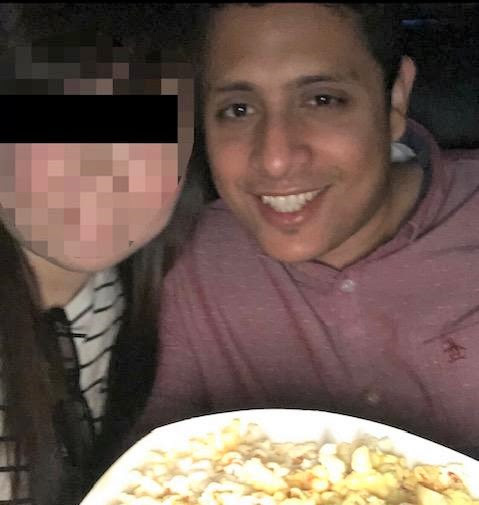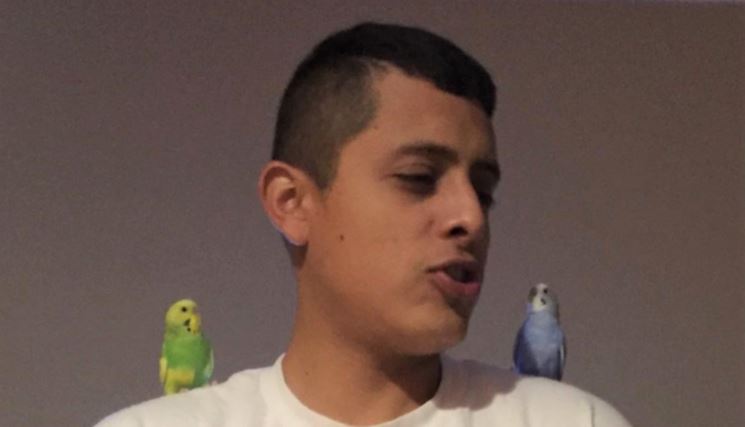Living without any identification in Houston, Texas for more than three decades, Mexican immigrant Gerardo Perez, 34, is looking for asylum in Canada, but his tumultuous past is acting against him.
He crossed the Canadian border in British Columbia by foot on Sept. 8, 2021 seeking asylum and presented himself to an official. He has been a detainee at the B.C Immigration Holding Centre (IHC) in Surrey for almost a month. Desperate and feeling like his case was stalled, he decided to go on a week-long hunger strike.
“They don’t want to release me because they said that I could do in Canada the same that I did in the (U.S.), but I asked for asylum because I don’t want to live (in hiding) anymore. I want to get an ID and start over,” said Perez, a computer programmer, in an interview with NCM.
A difficult past
Perez arrived in Houston, Texas, with his mom when he was three years old and grew up as an undocumented immigrant. His brother Hugo was born in the U.S. In 2008, Perez spent some time in jail for possession of marijuana, which at the time was illegal — an offence he allegedly admitted to in order to save his brother.
After three years in jail, he was released and deported to Mexico but came back to the U.S. in 2012. With his undocumented mother still in Texas, Perez was crossing the border in California when he recalls that he was violently caught by a border patrol agent, who caused serious damage to the mobility of his wrists and left leg.
For the last decade, he has been hiding from migration officials but continues working in computer programming for a Hong Kong company. Tired of hiding and feeling persecuted all his life, Perez decided to seek asylum in Canada.
“After (Donald) Trump became president, people — including police— were more comfortable (being) racist. If I went to the store or a restaurant, white people said racist stuff to me. I don’t want to be attacked on the streets. I decided to look for a new life in Canada.”
Perez travelled from Los Angeles to Washington. He went through the woods close to Ross Lake until he arrived by foot at Hope City, B.C.
“I approached a police officer, said my name and asked for asylum,” he said.
But Perez was carrying only his brother’s identification (with his permission). Perez said that he explained to officials that in the U.S., he required at least one piece of identification, hence why he was using his brother’s ID. But he now worries this will negatively impact his petition for asylum.
Trapped in the past
From January to June this year, 413 individuals have crossed the Canada-United States border between ports of entry (“irregular border crossings”) asking for refugee status, according to the Immigration and Refugee Board of Canada (IRB). Until June 2021, 17,555 refugee claims were pending.
Asylum seekers from the U.S. are taking advantage of the gap in the Canada-U.S. Safe Third Country Agreement which refers to the land port of entry but not between ports. The agreement states that individuals entering Canada by land are ineligible to make a refugee claim and will be returned to the U.S.
“They say that because I speak very well English (sic), I can hide in Canada and that I can do here what I did in the U.S., but I came here to stop hiding and to have an identification under my name, to work and even to create a company. I don’t want to be persecuted anymore,” said Perez, who has spent a month in an immigration holding centre. “I want to do everything according to regulations.”
Omar Chu, from the immigrant advocate organization Sanctuary Health in B.C., considers immigration detention “a cruel and abusive tool” of Canada’s inhumane immigration and refugee system.
“By participating in a hunger strike, Perez is following in the footsteps of migrants who went on hunger strikes from Lindsay, Ontario to Laval, Quebec in demanding an end to this unjust system,” he said.
He added that claiming asylum in Canada is out of reach for many Mexicans and displaced people from around the world. “The only answer is for Canada to provide full and permanent immigration status for all, without exclusions.”
Trapped in his past as an undocumented person in the U.S., without any criminal charge against him, and having difficulty moving his hands and leg, Perez has faced several interrogations about his life in the neighbouring country to evaluate if he is eligible for refugee status.
“I want to marry my girlfriend, use my name, work every day, buy a house, and live a correct life,” he said, adding that he is waiting for a possible transfer to a Salvation Army men’s shelter.
He is not a criminal
Perez’s girlfriend talks on the phone with him every day to comfort him and to get an update on his asylum claim process.

“Gerardo has been cooperative with the immigration agencies as requested such as to (confirm) his identity and submit all the required documents. He is a refugee, not a criminal,” said his girlfriend of six years who lives overseas and preferred being identified only as “Lee” to avoid jeopardizing her job.
For Perez, if his case “doesn’t go forward,” he would consider “a second hunger strike.”
“I don’t want to be in the detention centre for 18 months,” he said.
After almost one month in the IHC, Perez feels that Canadian immigration officials seem like U.S. officials, but he said he prefers to keep confidence in his lawyer. His main concern is being deported to Mexico, a place that he doesn’t know. He doesn’t even speak Spanish.
“I’ve been persecuted my whole life in the U.S. I have no more rights than a deer.”
Isabel Inclan has worked as a journalist for more than 20 years, in both Mexico and Canada. She began working as a foreign correspondent in Canada in 1999 for Mexican media. She has been a New Canadian Media contributor since 2018. Her main areas of interest are politics, migration, women, community, and cultural issues. In 2015, Isabel was honoured as one of the “10 most influential Hispanic Canadians.” She is a graduate of Masters in Communication and Culture at TMU-York University. She is a member of CAJ and a member of the BEMC´s Advisory Committee.





